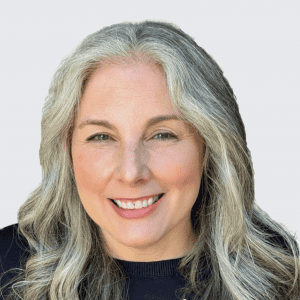You can anticipate that you will have some worries when you become a parent. You are fully responsible for this new little person and for keeping them safe. When they are home there are dozens of safety measures you can implement – smoke detectors, fencing, safety gates, etc. As they grow and develop, you will teach them to achieve a certain level of independence so you become more comfortable sending them out into the world, knowing that they have the ability to take care of themselves.
It is difficult for anyone to understand unless they have lived through it, but when you have a child with Dravet syndrome there is constant worry that never goes away. Worry over seizures, health, development, sleep, behaviors, medical expenses, and so much more. When will the next seizure occur? What will the future be for my child? What can I do to offer them a better quality of life? But the most difficult worry that our caregivers live with is sudden unexpected death in epilepsy, known as SUDEP.
SUDEP has been in the news the last few weeks because of the tragic passing of Disney star Cameron Boyce. When SUDEP strikes, the child or adult is often found dead in their bed, with or without evidence of a seizure prior to the event. We don’t understand the cause of SUDEP, which makes it difficult to address the problem. Some researchers believe it could be a seizure that causes an irregular heartbeat or respiratory suppression.
Now think of your own child. Try to imagine for a minute if you were up against something that you had absolutely no control over preventing. Doctors don’t understand the cause. There are no warning signs. And there is no way to predict or prevent your child from dying from it. While SUDEP is considered rare – 1 child with epilepsy out of 4,500 per year and 1 adult with epilepsy out of 1,000 per year – the risk increases dramatically if your child has a rare and intractable epilepsy, such as Dravet syndrome. SUDEP is always on the minds of our families. Our community grieves regularly over the loss of yet another child in our community to SUDEP. As parents, we are at the same time devastated for these families and terrified for our own child.
DSF has an obligation to our community to do what we can to help them navigate this difficult topic, while also doing what we can to raise awareness of SUDEP. We feel that we can make a difference by:
- Encouraging conversations about SUDEP between doctors and patient families. Families need to be aware of not only the threat of SUDEP but possible steps that have the potential to minimize this threat, such as medication compliance and monitoring devices. Knowledge is power and while medical professionals might not want to frighten families unnecessarily, these dialogues must happen.
- Better understanding the incidence rate and causes of SUDEP. DSF will continue to support research in the area of SUDEP, as well as the efforts of the organizations who have made it their mission to improve the understanding of SUDEP and prevent deaths caused by seizures and epilepsy, such as the Danny Did Foundation and Partners Against Mortality in Epilepsy.
- Continuing to educate our community on SUDEP. At the 2018 DSF Family and Professional Conference, Dr. Elizabeth Donnor of The Hospital for Sick Children and University of Toronto gave an excellent and informative presentation on SUDEP and Dravet syndrome. You can watch the video of her presentation or view her presentation slides to better understand the incidence and risks.
- Supporting our community members who have lost a child. DSF Board Member Jenny Tischer, leads our bereavement efforts. She has created a community within our community to connect bereaved parents and offer them much needed support.
If you have questions on SUDEP or have lost a child and want to connect with others, please reach out to me. All of us at DSF are here to help.






